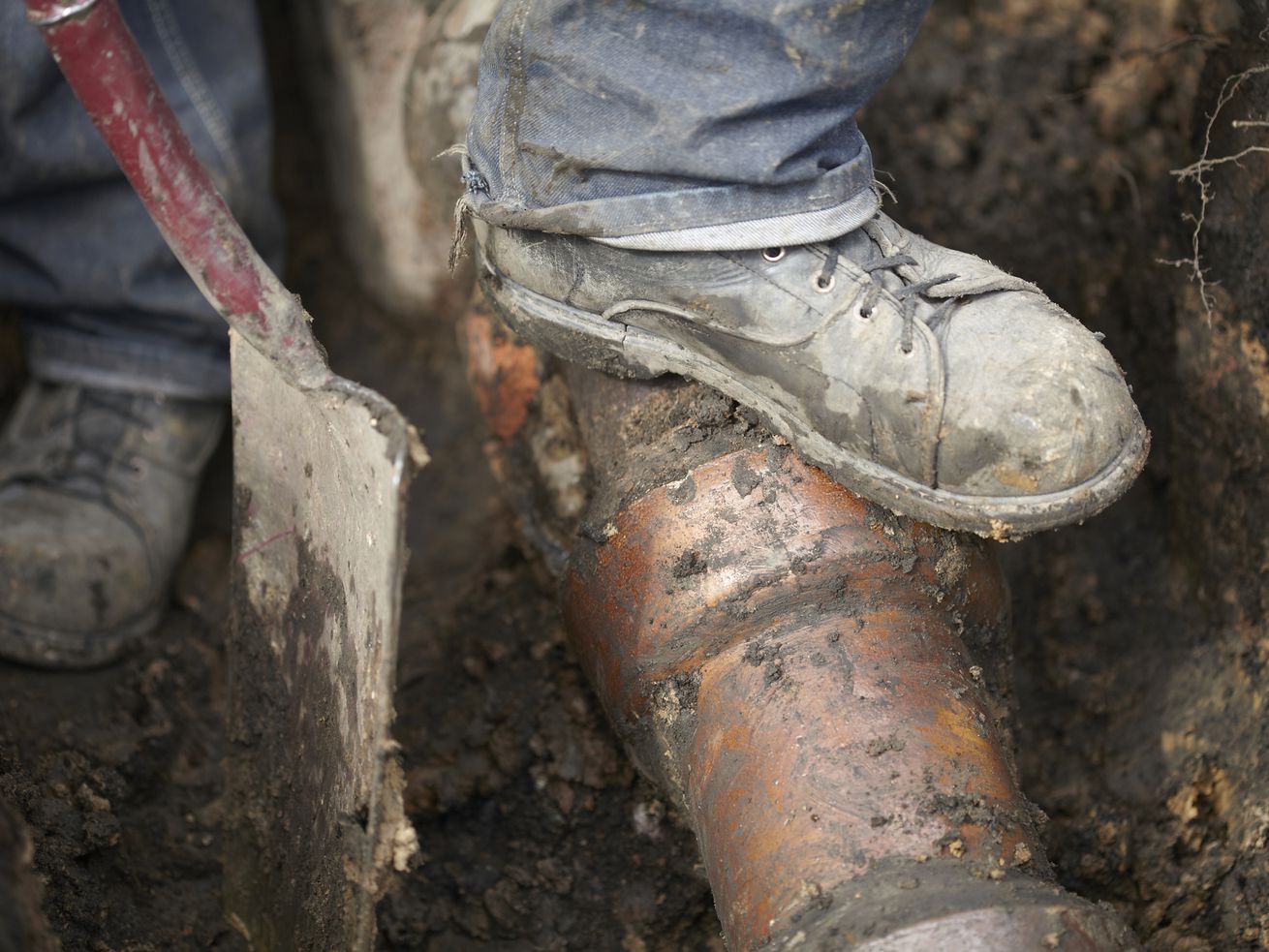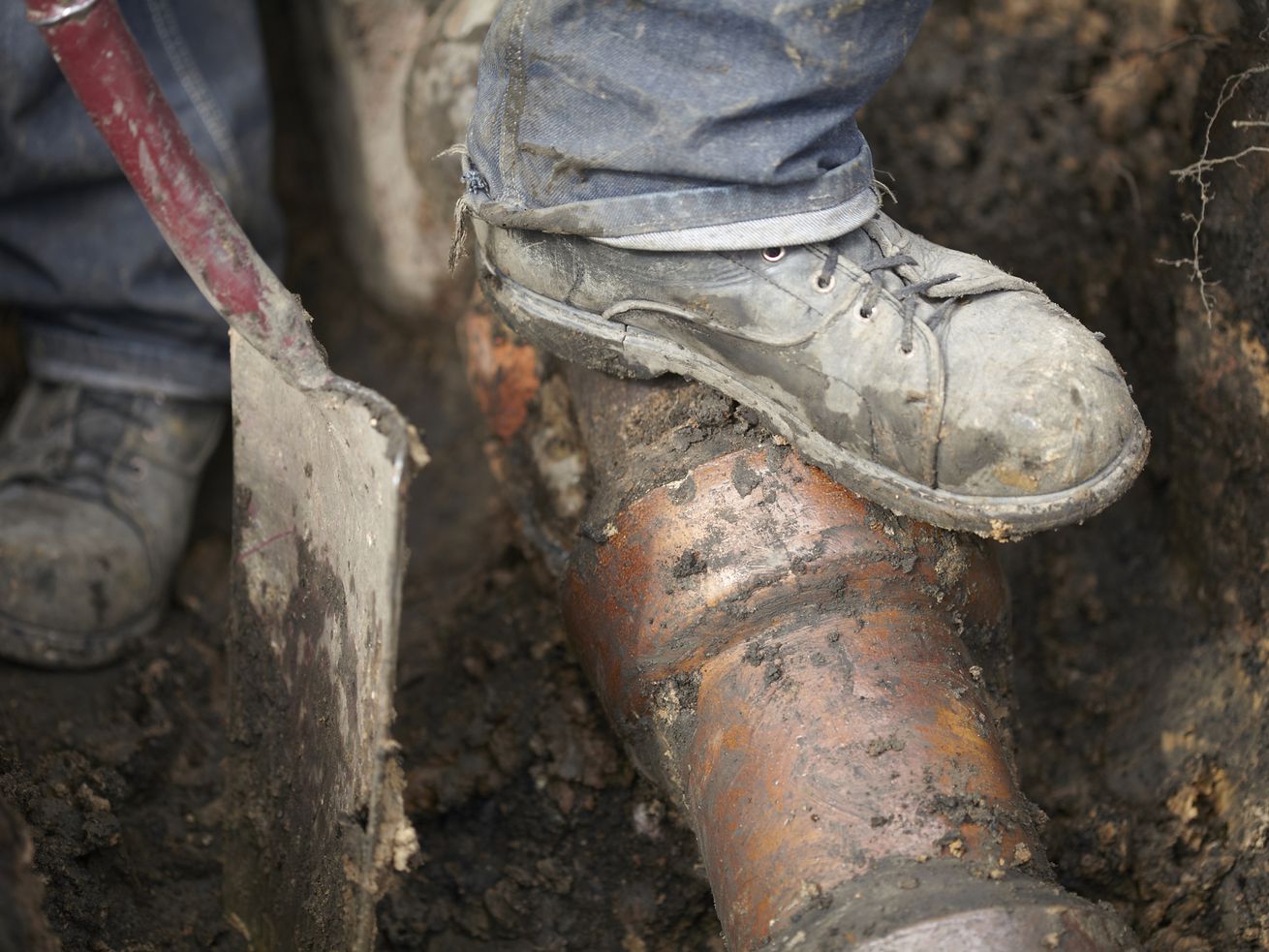What to Do When Your Sewer Backs Up

>

Getty Images/iStockphoto
When it comes to bad things like a sewer backup, it’s always smarter to be prepared. Read on for a few tips for handling a sewer backup.
You don’t need an article to tell you that a sewer backup is no joke. But, old houses, increased rain, and lack of maintenance can suddenly experience sewage backing up into their homes.
If this happens to you, you’ll need to take measures to fix it immediately to avoid further issues and emergencies.
Get Regular Sewer Inspections
The first step in how to manage a sewer backup is to not have one. Some plumbing companies offer an annual inspection program where they will scope and clean your existing drains. Among other things, grease can build up and harden in the pipes over time. But with a yearly inspection, minor obstructions like grease buildup can typically be water jetted away.
Another problem the scope may find is a broken or cracked pipe. The older the house, the more likely the drain stacks are cast iron and they can fill over time, crack, or—worse—be cracked or breached by tree roots or heavy equipment in the yard.
Long story short, an inspection is inexpensive compared to a repair.
What to Do When a Sewer Backup Happens
There are two types of “sewage”—that which goes down the toilet (and subsequently the sewer drain) and that which comes from exterior sources like a storm sewer.
No matter which type of backup you experience, don’t go in there unprepared.
If you have effluent (liquid waste) in your home, the first step is to call a plumbing or restoration company that has drain specialists on staff. If you’ve already had a drain inspection, you’ll presumably have a number in your contacts and won’t be calling all over town looking for the right person, while one of the nastiest jobs in plumbing soaks into every crack and crevice in your basement. So, a yearly inspection may well pay off twice.
While some companies say not to go into the affected area at all, others say you can go in, as long as you do so wearing protective clothing like rubber boots. Remember, the electric may still be energized and you don’t want to step into liquid while it is—so make sure to trip the breaker at the panel to de-energize the room before entering.
Sewer Drain Versus Storm Drain
A sewer drain and a storm sewer are two different things and sometimes older houses have both. And while it is commonly held that a sewer drain backs up largely because there is a blockage or break in the sewer line, some homes have floor drains attached to the storm sewer system. That water can back up into the house in a flooding rain because the city sewer is overwhelmed.
While that water won’t be by any means clean and may well have stuff in it that can make you sick, it can be handled carefully and evacuated from the home quickly and may not require a plumber. Rubber boots, a respirator (at the very least a dust mask), and a protective suit are all recommended.
One approach is a wet-dry vac. If you have a few inches of water from a storm sewer—or other inundation, like water coming in under a door—in your basement, a wet-dry vac can be used to suck up a little at a time. The water can be poured out into the sewer drain via a shower or utility sink. Just a few inches of water is a LOT and may take more than 40-50 fills of the vac.
Another approach is to buy a submersible utility pump. Place it in the lowest spot of your basement, run a garden hose out the window and let it work. Both of these, of course, run on electricity—so the utmost caution should be taken.
How to Dry Out After a Backup
Next is to make a plan to get everything that’s wet dry. Carpet, drywall, and your things. Depending on the flood, what needs to be done to get everything dry will vary, but whatever’s wet needs to be made dry again. Open the windows if possible and buy or rent a floor fan.
How Much Does Sewer Repair Cost?
Give your insurance agent a call and see what they cover and what they don’t. There are third-party companies that specialize in insuring house systems, and that may make sense for you as appliances like water heaters and stoves age just as drains do.
When it comes to bad things like a sewer backup, it’s always smarter to be prepared, even if it’s a headache to write a check to ensure a system that virtually all of the modernity takes for granted.
Did you miss our previous article…
https://www.tampa-bay-homes-guide.com/?p=388
